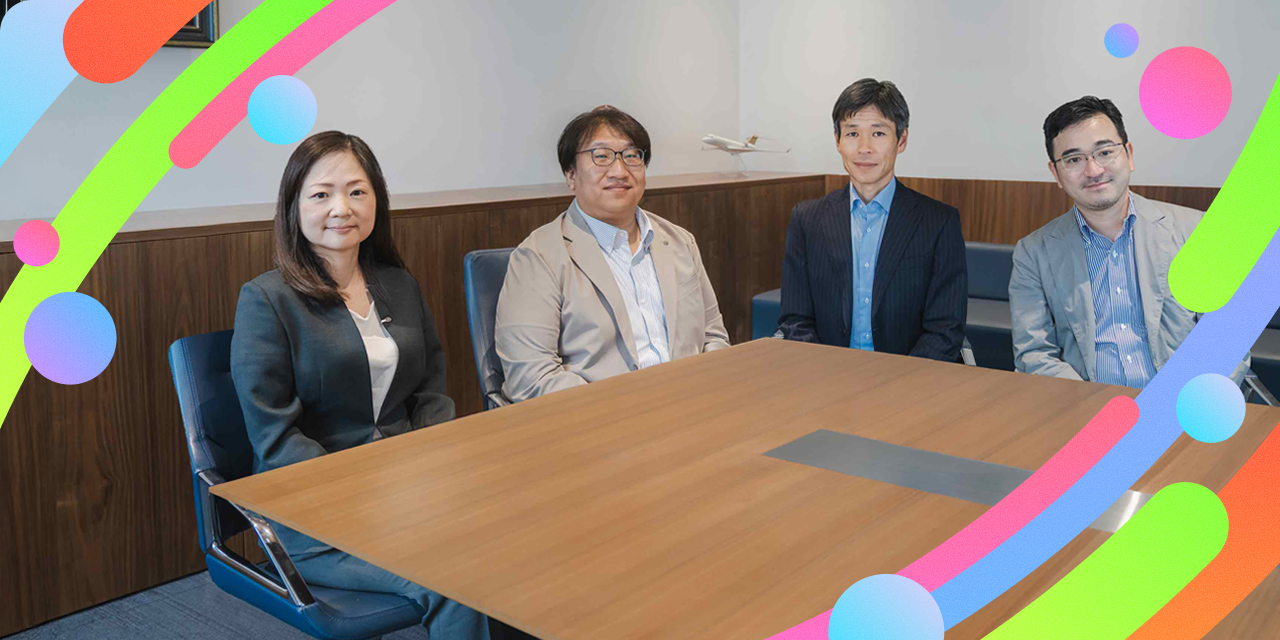
Building a future of Still Enjoyable Travel by leveraging the CO2 reduction value of Sustainable Aviation Fuel (SAF) programs
HIS began selling tours utilizing a program that leverages the "CO2 reduction value" of Sustainable Aviation Fuel (SAF) sold by Marubeni Corporation starting in June 2025. We learned about this program's initiative, which contributes to reducing CO2 emissions in the travel industry and provides customers with an option to enjoy travel while contributing to the preservation of the global environment.

Marubeni Corporation
General Manager
Next Generation Energy Business Development Sec. New Energy Business Development Dept.
Shiraishi Jumpei
After working at a manufacturer, joined Marubeni Corporation in 2009. Gained experience in natural gas business development and management, and has been engaged in next-generation fuel businesses such as hydrogen and low-carbon transportation fuels since 2019.

Marubeni Corporation
Manager
Next Generation Energy Business Development Sec. New Energy Business Development Dept.
Hashimoto Fumito
Joined Marubeni Corporation in 2007. After assignments in the United States and experience in oil and natural gas trading and business investments, has been responsible for business development related to low-carbon fuels since 2021. Assigned to the current department in 2024, engaged in new business development related to SAF.

H.I.S. Co., Ltd.
General Manager
Overseas Travel Division
Fukushima Keisuke
Joined HIS in 1998. Gained experience in airline procurement for Europe and the Middle East, then assumed responsibility for reservation and ticketing operations. Subsequently served as brand leader for "impresso" alongside the Europe regional manager, and has held the current position since 2022.

H.I.S. Co., Ltd.
Group Leader
Overseas Travel Division impresso Business
Chiba Junko
Joined HIS in 2001. After handling tour and flight arrangements for the European region, assumed current position in 2025. Serves as planning manager for the guided tour brand "impresso," overseeing Europe, the Middle East, Africa, North, Central, and South America, and Oceania.
*Please note that the content of this article was current at the time of the interview.
First, could you tell us what SAF is?
Shiraishi (Marubeni): SAF is an aviation fuel made from non-fossil-derived feedstocks. Its key advantage is the potential for significant CO2 emissions reductions compared to conventional fossil-based fuels. Furthermore, its chemical properties and safety are fundamentally equivalent to conventional jet fuel, enabling its use in existing aircraft and infrastructure without modification. The most widely used feedstock currently is waste cooking oil, and efforts to expand collection networks are underway in Japan. The core concept of SAF is recycling carbon already present in the environment.
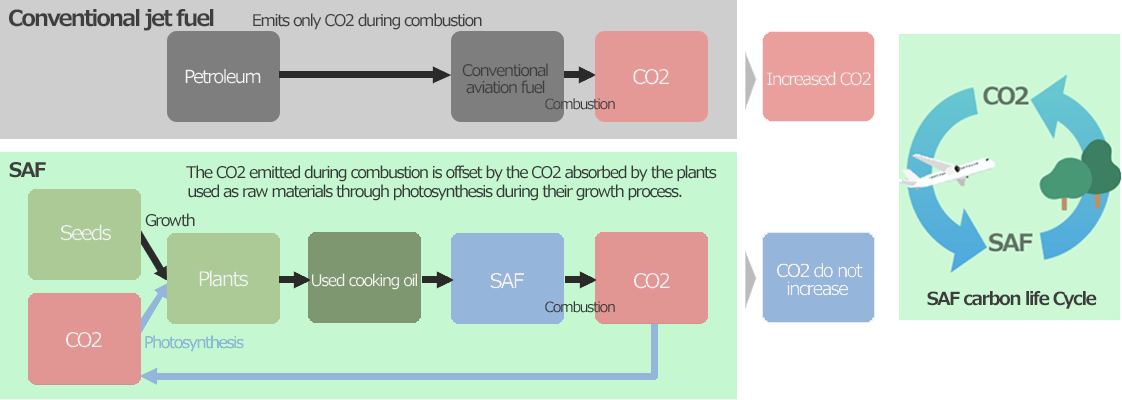
Shiraishi (Marubeni): CO2 emissions from the aviation industry account for approximately 2-3% of global emissions, and this proportion is projected to increase in the future due to rising aviation demand. The International Civil Aviation Organization (ICAO), a specialized agency of the United Nations, adopted CORSIA (Carbon Offsetting and Reduction Scheme for International Aviation) in 2016. This framework gradually mandates that airlines reduce any increase in CO2 emissions beyond their 2019 baseline. ICAO encourages the adoption of SAF as the largest and most realistic means to achieve this.
Could you explain the program that utilizes indirect CO2 reduction value?
Shiraishi (Marubeni): Separate from the flow of the SAF product itself (Scope1), this program uses a mechanism to manage and trade CO2 reduction value (Scope3). By issuing certificates based on the CO2 reduction value of the SAF supplied by Marubeni, it allocates "indirect CO2 reduction value" to the companies using the aircraft.

Hashimoto (Marubeni): The program has received validity certification from the Japan Maritime Association (ClassNK), an international third-party certification body, ensuring transparency and reliability in calculating CO2 reduction value and issuing certificates.
Please tell us the background behind Marubeni launching this program.
Shiraishi (Marubeni): Marubeni imports aviation fuel and supplies it to domestic airports. As reducing CO2 emissions became an urgent issue within the industry, we also began supplying SAF to the Japanese market starting in 2024. However, SAF is expensive, and there are limits to what a single airline can bear in terms of cost. As one solution, we considered a proposal where each party, including those who actually benefit from the "value" of SAF by using the aircraft, would bear a portion of the cost to gain the benefits. We created a program to sell the "CO2 reduction value" of the SAF we handle individually to aircraft operating companies. From the fuel supplier's perspective, we aimed to create a program that would be easy for aircraft operators to participate in.

Shiraishi (Marubeni): The notion that only users or airlines should bear the costs is skewed. I believe one approach is for the entire supply chain to share the costs and enjoy the benefits while working to promote the use of SAF.
Hashimoto (Marubeni): Scope1 and Scope3 are based on the same SAF. Traditionally, there was an issue where the value of Scope3 remained buried and unseen if airlines merely purchased and used SAF. Visualizing that value and enabling others to benefit from it is a key point of this program.
Shiraishi (Marubeni): Marubeni aims to solve challenges through collaboration with its partners. While travel companies like HIS and trading companies haven't had much interaction before, by having HIS participate in this program, we aim to reach general passengers - a group Marubeni wouldn't reach just by supplying fuel. This creates value, enables new groups to enjoy that value, and fosters it's new value through industry collaboration.
Could you tell us the background behind HIS introducing this program?
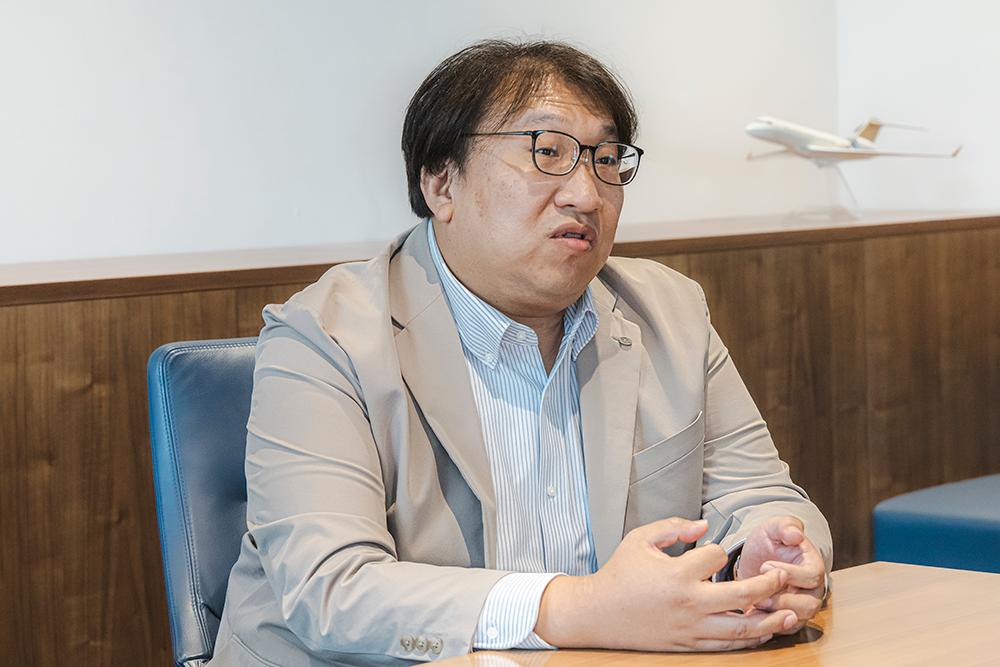
Fukushima (HIS): Our tour guide-accompanied travel brand "impresso" has reached its 25th anniversary. Up until now, I believe what our customers have sought from HIS is to lower the economic barriers to overseas travel by "reducing prices," making overseas travel feel more accessible to many people, and providing various experiential values. Years have passed since then, and while continuing to fulfill that role, we felt it was time to move into a phase of communicating new value. The greatest contributors to these 25 years of patronage are the destinations themselves and the customers who resonated with them. When we considered what we should do to ensure those same customers continue to enjoy "fun overseas travel" for the next 25 years, the primary catalyst was the realization that we needed to provide one concrete answer regarding sustainable tourism development at this juncture.
Fukushima (HIS): HIS has been participating in a program where airlines primarily purchase SAF and recruit supporters in 2024. However, we wanted to proactively consider environmental value ourselves and were exploring ways to engage independently of airline programs. Airfare constitutes a significant portion of overseas travel expenses. We felt that to generate environmental value, we needed to focus our efforts where this proportion is highest. As a leading company in overseas travel, we received a proposal from Marubeni for a solution enabling us to proactively engage with environmental value, leading to its implementation.
It's been about four months since sales began in June. How has customer response been?
Chiba (HIS): We have approximately 500 seats available for the target departure period from November 2025 to January 2026. In the four months since sales began, we've received applications from over 350 customers.
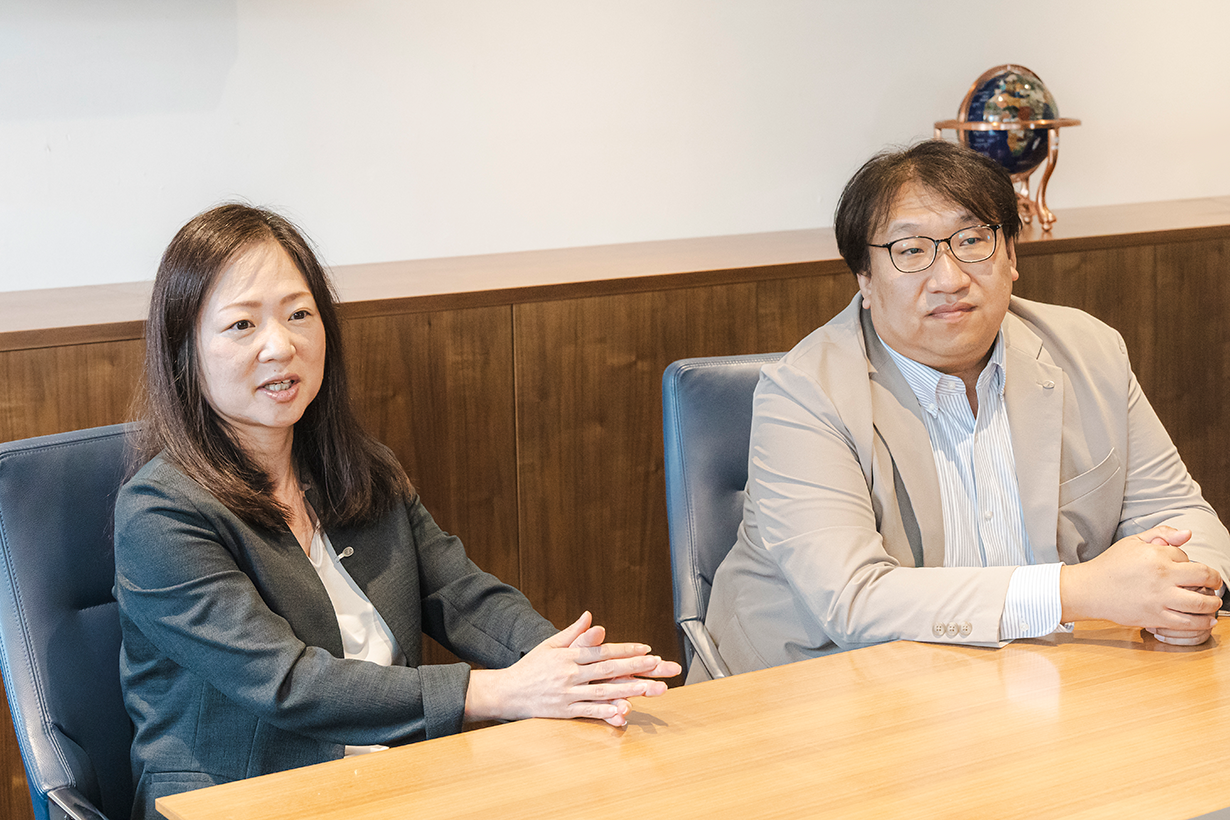
Fukushima (HIS): We are currently in discussions to add departures for February and March. (Note 1) As this period coincides with the student travel season, we've also observed an increase in recent years of parents traveling with their children. The generation often referred to as Generation Z is highly environmentally conscious, and they may also educate their parents' generation. Therefore, we intend to continue offering programs during February and March. While we could offer it as a tour specifically focused on sustainability, our current priority is to first "introduce" products developed based on environmental value. We are integrating this program into courses that already have a proven track record and popularity. To help participants feel a greater sense of contribution to global environmental conservation, we provide them with a participation certificate.
Shiraishi (Marubeni): Given that our business is largely B2B, it's incredibly stimulating to see consumer voices and faces emerge through initiatives like this. Hearing indications of potential behavioral shifts gives us a valuable new perspective on what the future holds.
How do you perceive the potential of this program?
Fukushima (HIS): While it hasn't reached the level of Europe and America yet, environmental awareness is gaining attention in Japan too. I believe it's crucial to sustain these efforts rather than letting them fade away, and also to educate HIS employees. Rather than potential, it might become an obligation we must fulfill in a few years, just like it is now in Europe and America.
Shiraishi (Marubeni): It would be great if a world where SAF becomes the norm were to arrive, but until we get there, I think it's crucial to foster a culture where people want to participate voluntarily, not because they're forced to, and to change the general mindsets.
Hashimoto (Marubeni): We've had the opportunity to present this program and received inquiries from various quarters, with many recognizing it as an innovative initiative. I believe it has provided some motivation, making people think, "We need to do something too." I sense a signal that could spark a movement.
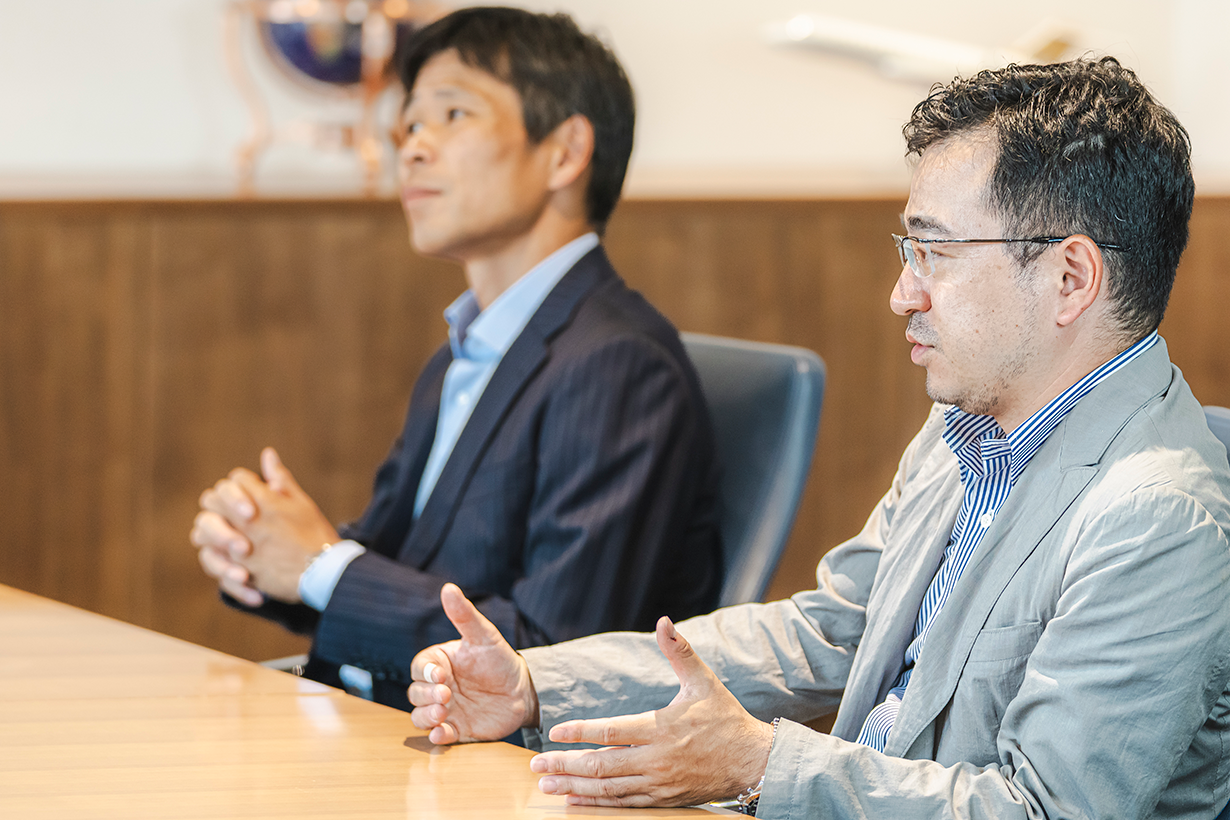
How do you expect our travel to change as SAF adoption progresses?
Fukushima (HIS): I actually think this progress means that things in travel won't have to change much. Take the issue of overtourism--if we do nothing, environmental deterioration will inevitably occur. Perhaps restrictions on daily flight arrivals could be implemented, or regulations banning certain aircraft types might be introduced, making travel as we know it today impossible. By promoting SAF usage, I believe we must work to preserve a future where we can continue traveling and sightseeing whenever and wherever we want, just as we do now. It's about continuity, not conversion.
Shiraishi (Marubeni): Globally, there is a movement to mandate the use of SAF in various regions, and within Japan, discussions are underway regarding specific timelines and quantities. If things continue as they are, I believe this will be the direction taken. However, if the burden of this mandate falls disproportionately on airlines, airfares will become increasingly expensive, and flight frequencies may also change from what they are now. Currently, SAF accounts for less than 1% of total aviation fuel. Even if we aim to increase its volume, concerns still exist that we will run out of the raw material, that is waste cooking oil. Consequently, efforts are underway globally to collect the substantial amount of waste cooking oil that currently goes uncollected. Beyond waste cooking oil, technological development is advancing to convert other bio-based materials, residues, and waste into fuel. Marubeni is also engaged in such initiatives.
Hashimoto (Marubeni): The raw materials we currently collect are primarily sourced through B2B channels. On the other hand, waste cooking oil from households are often simply disposed. If this tour sparks awareness and motivates people to think, "I should take this waste cooking oil to the supermarket for its collection," it could gradually help alleviate the raw material bottleneck. This, in turn, could lead to the wider adoption of SAF, creating a virtuous cycle. Perhaps such a future awaits us.
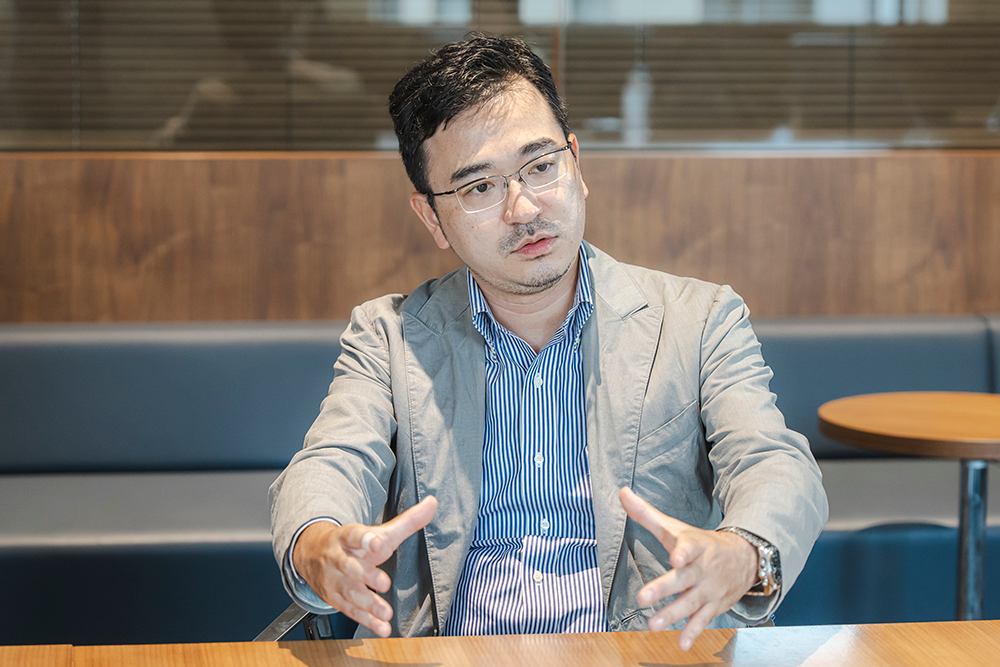
Chiba (HIS): Perhaps someday HIS stores will also collect used cooking oil.
What kind of future are you aiming for?
Shiraishi (Marubeni): I often fly for overseas business trips, and while work brings its own special excitement, leisure travel is even more thrilling. I want to work towards promoting SAF so that our children's generation can continue enjoying these same experiences. There's only so much we can do on our own regarding SAF usage, so by borrowing ideas from HIS, I hope we can contribute, even in a small way, to the development of the aviation industry.
Hashimoto (Marubeni): As Mr. Fukushima mentioned, the idea of "a future where we can continue doing things as before" is something I consider very important. This summer's intense heatwaves meant children couldn't play outside or participate in sports... I hope we can contribute even a little to reducing CO2 emissions, creating a society where the next generation can continue all of today's activities, including the joy of travel.
Fukushima (HIS): It's vital that we convey to every single customer the importance of their spontaneous involvement in environmental initiatives. We need to build a future where such involvement is considered the complete norm, and that must be our ultimate goal, or else environmental preservation will not be sustainable. Simultaneously, those who are offering environmental conservation efforts must also refine and improve their approach. By introducing thoughtful modifications into our tour products--such as making them simpler for customers to accept or ensuring customers can truly recognize their impact--we can increase the number of individuals who will naturally contribute to the environment as the expected standard.
Chiba (HIS): As a planner, witnessing problems like overtourism truly pains me, and I feel we must rethink the future of travel. When I have the opportunity to speak with European and American travel professionals, the subject of sustainability vision and concrete efforts is a mandatory discussion point. But they also emphasize that "sustainable travel doesn't mean sacrificing anything; rather, it broadens the appeal of tourism. By traveling with deeper understanding, you discover the true essence of a country." I believe this is one of the challenges us planners must address to foster a better mutual understanding.
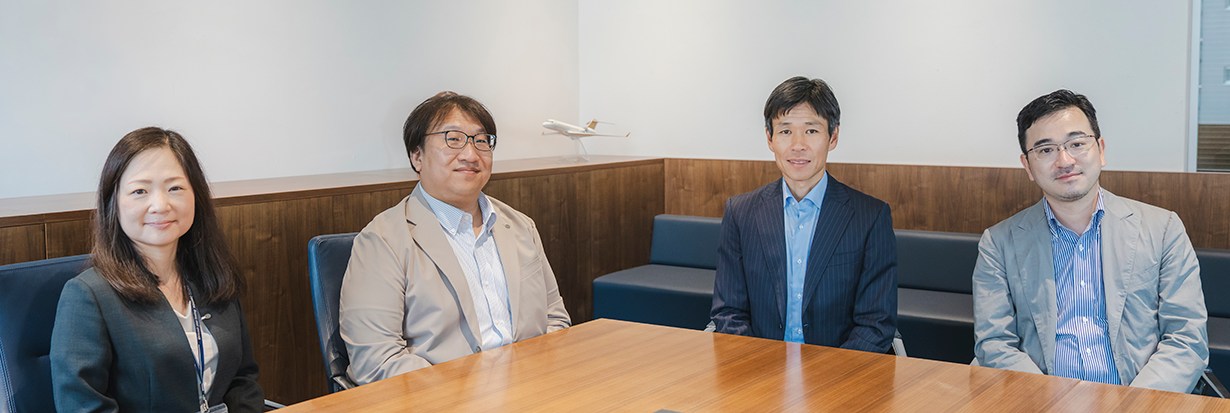
Eco-Friendly Overseas Travel with SAF
(Note 1) As of November 2025, the program has been extended, with departure dates now available through the end of March 2026. A total of 800 seats are available.
